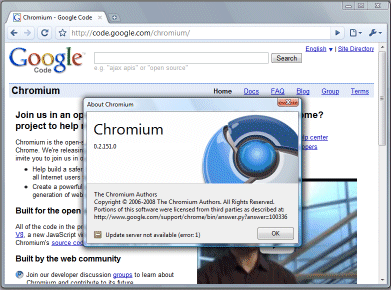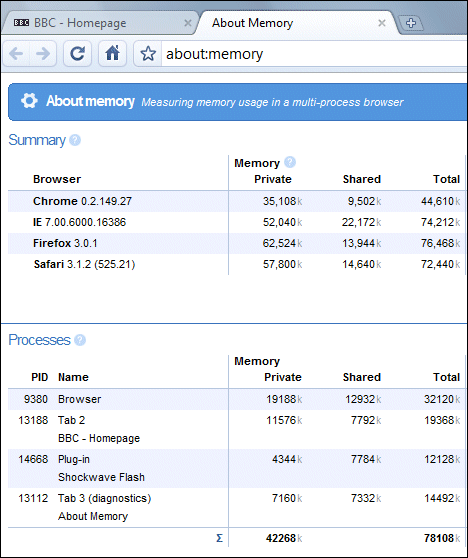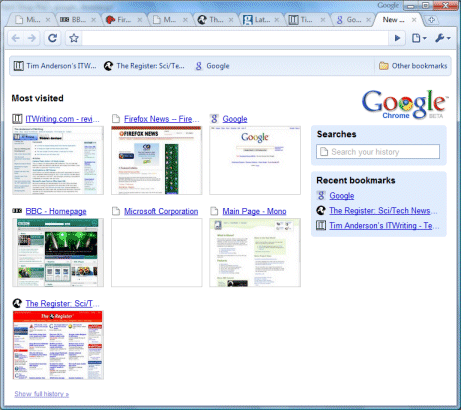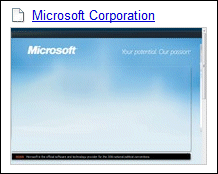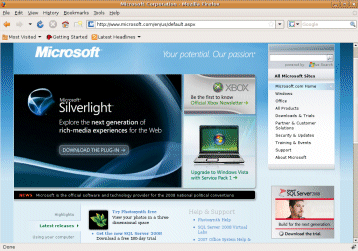Here’s a bit of speculation. My initial thinking about Google Chrome was that it would mainly take market share from Firefox; and that while IE’s share may continue to erode, Chrome is unlikely to accelerate that much.
I’m beginning to change my mind. One factor is OEM installs. We all know what a huge influence default installs have on users, which is why software vendors are happy to pay the likes of Dell and HP for space on the desktop, or to be the default anti-virus engine, for example. This has often been to the detriment of the user’s experience overall, to the extent that it helped to damage Vista’s reputation, but that is an aside.
Now, one thing I’ve noticed is that Google’s toolbar often turns up by default in OEM installs of Windows. When you start up for the first time (or the first time for real, after all those reboots), IE confronts you with Google’s terms of service. However, I have not yet seen Firefox installed as the default web browser. I’ve presumed that Mozilla doesn’t quite have the financial muscle to do it, or maybe there are other reasons.
Google is a more formidable presence than Mozilla. What if Google buys browser share by being the default browser on machines from the leading OEMs? I suspect that would soon impact IE’s share. Microsoft cannot prevent it because of anti-trust constraints.
Since Chrome is in effect the new Google toolbar, this move strikes me as inevitable.
This would mainly impact the consumer and small business space. IE has some special advantages for enterprises, since it hooks in tightly to Microsoft’s software management tools, and there are further improvements to this aspect in IE8. The consumer/business separation is a leaky one so it could still have a big impact.



